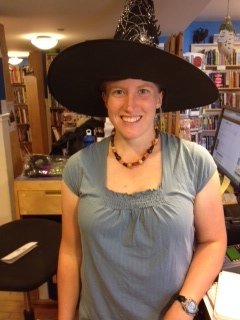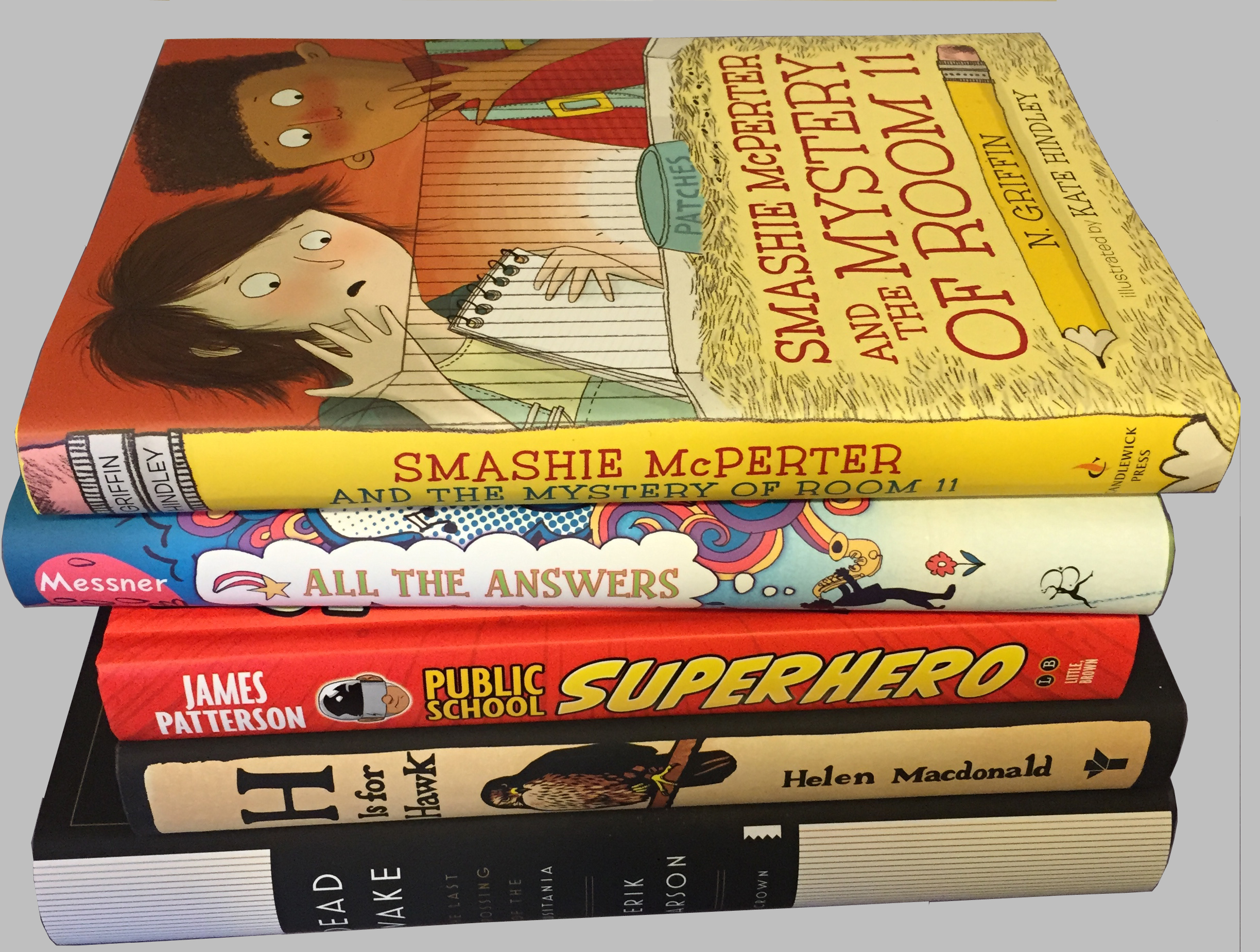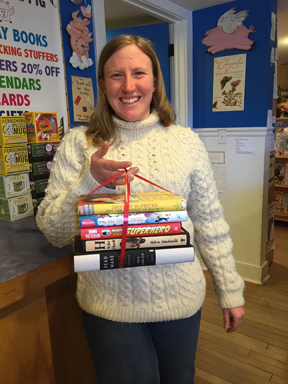Part of every day at the bookstore is spent calling customers to tell them their books have arrived. This means that I get to hear a lot of outgoing voice mail or answering machine messages. With this in mind, I’ve created a helpful list to make this part of my job easier.
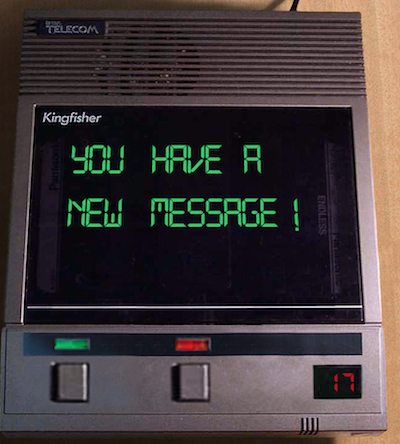 – Animals have no business being on a message. Barking dogs and squawking parrots are not fun to hear on the phone. I have called people and had to listen to 30 seconds of barking because someone thought that was funny. It’s not. It’s 30 seconds of a dog barking at me.
– Animals have no business being on a message. Barking dogs and squawking parrots are not fun to hear on the phone. I have called people and had to listen to 30 seconds of barking because someone thought that was funny. It’s not. It’s 30 seconds of a dog barking at me.
– I don’t speak another language, so if you do, just know that I’m thrilled and jealous about your bilingual ability, and I’m just waiting for the beep and silently hoping I’ve called the right number.
– Singing on your outgoing message should also be avoided. Some folks actually have lovely voices, but the singing messages tend to be long and there’s no way to fast forward to the beep.
– Do try to identify yourself in the message. So often I feel like I’m just hoping I’ve gotten the number right and messages like, “Leave a message.” or “Congratulations, you’ve reached me,” do little to allay those fears.
– Don’t give me directions. Lately, I’ve called people and been urged to “just breathe” or “slow down and enjoy the music.” I’m working. I have enough to do without being told how to manage my time.
– Lastly, if your outgoing message contains your kids laughing because they’ve messed up the outgoing message, please leave that. While I might not always enjoy the messages the kids leave on the answering machine if I can hear them being coached by parents, kids just losing it in fits of giggles delights me. And if it’s a particularly infectious laugh, I might just call back so I can keep laughing.
Monthly Archives: April 2015
A Movie Debut Of Unusual Interest
Kenny Brechner - April 9, 2015
On April 18th the independent film Tumbledown, starring Jason Sudeikis and Rebecca Hall, will debut at the Tribeca Film Festival in New York City. The film is the first joint project by the 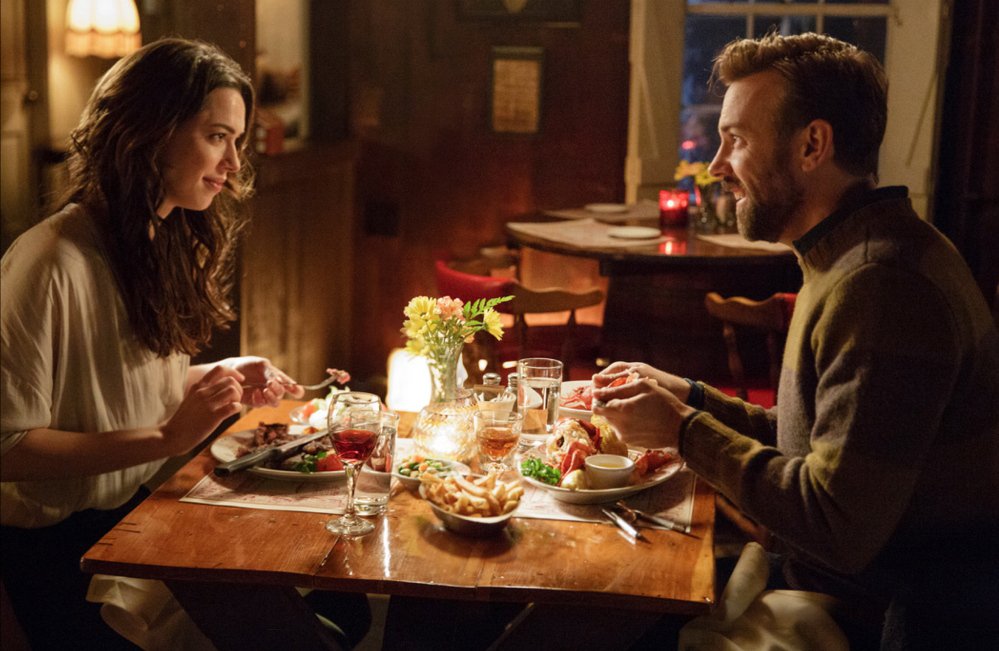 husband and wife team of scriptwriter Desi Van Til and director Sean Mewshaw. Tumbledown is set in Desi’s hometown of Farmington, Maine, and the film is in fact fraught with interest for my bookstore for a number of reasons.
husband and wife team of scriptwriter Desi Van Til and director Sean Mewshaw. Tumbledown is set in Desi’s hometown of Farmington, Maine, and the film is in fact fraught with interest for my bookstore for a number of reasons.
Here are a few of them. Desi worked for me at DDG for three years when she was in high school (and is still a pal). DDG is literally a setting in the film (which was shot in Concord, Mass, where a doppelganger of DDG was constructed). The owner of DDG is a character in the movie, played by Griffin Dunne, and is Desi’s version of me.
Apart from talent, Desi and Sean have shown big character and perseverance in bringing this project to culmination and I am extremely proud of them. Obviously getting Desi’s thoughts on the independent-bookselling-related angles of the movie was an errand of moment.
 Kenny: I don’t have the exact date at hand, but it must be at least nine years since you first began this film project. If you could write yourself a letter that would arrive back on the day you first sat down to write the script what would it say?
Kenny: I don’t have the exact date at hand, but it must be at least nine years since you first began this film project. If you could write yourself a letter that would arrive back on the day you first sat down to write the script what would it say?
Desi: I think there are two basic categories of advice that older selves give our younger versions, and it’s either ‘work harder’ or ‘work less hard.’ I would put your question in the ‘work less hard’ department. I would say to my younger self: Don’t get so attached. Don’t fall too in love with any given moment or line or scene. Over the process of making the leap from script to film, it will and must change significantly. Whole scenes won’t get shot because you’ll run out of time, or favorite lines will end up on the cutting room floor to help with pacing, or jokes that work all too well will get diced for the blushing ears of the MPAA. The lesson is: enjoy your favorite bits of dialogue or action in the moment as you write them, but recognize they are ephemeral. Once your draft leaves the theoretical space of screenplay and becomes the actual thing of film, it will have evolved into a different beast. Therefore don’t worry so much about getting all the details exactly right the first time; focus on the story and keep your expectations fluid.
 Kenny: Still, all things considered, I daresay that you feel at least somewhat like King Eric the Victorious of Sweden when ‘The King was like a man that hath borne over long time a difficult burden and, casting it down at length where he would have it, breatheth free and seeth all fair before him.’”
Kenny: Still, all things considered, I daresay that you feel at least somewhat like King Eric the Victorious of Sweden when ‘The King was like a man that hath borne over long time a difficult burden and, casting it down at length where he would have it, breatheth free and seeth all fair before him.’”
Desi: Maybe somewhat, at least when I am sitting on an Ikea chair. But perhaps I feel a little more like Sisyphus, except now we can finally stop rolling the boulder up the hill. Or, more likely, we can look for another boulder to roll. Or another hill up which to roll it. Hopefully whatever comes next won’t take seven years to make!
 Kenny: Now I know that Griffin Dunne, the actor who portrays your version of me, is a terrific actor with a rich background in the book world. I do understand that he did a fabulous job. Still, I also note that my two suggestions for that role, Charles Laughton and Leslie Howard, were both disregarded by you. I suppose you made the right call but I can’t help wondering why not one of them?
Kenny: Now I know that Griffin Dunne, the actor who portrays your version of me, is a terrific actor with a rich background in the book world. I do understand that he did a fabulous job. Still, I also note that my two suggestions for that role, Charles Laughton and Leslie Howard, were both disregarded by you. I suppose you made the right call but I can’t help wondering why not one of them?
Desi: Naturally we approached Charles Laughton per your request, but his agent informed us that he was unavailable on account of his death in 1962, and there was nothing we could say to convince him otherwise. We did consider having Griffin yell “Sanctuary! Sanctuary” in the middle of the second bookstore scene, but somehow it seemed just a touch over-dramatic. As for Leslie Howard, the casting of a Henry Higgins character seemed, frankly, a little on the nose. Luckily, Griffin does a tremendous job channeling the inner Brechner.
Kenny: Apart from capturing your own memories of youthly bookselling at DDG, did you use the presence of an independent bookstore in Tumbledown to express your more contemporary thinking about the role of community based-bookselling?
Desi: All cheekiness aside, the entire art department of Tumbledown worked its tail off to re-create DDG, not merely in its look and style, but in its warmth, its coziness, its density of amazing books and interesting things per square foot. The film tries to celebrate DDG’s creative energy, its thoughtful playfulness, its commitment to the community it serves as a nexus of intellectual and cultural life. In the movie, as in real life, DDG is a pulsing, vital, brilliantly curated place!
 Kenny: Suppose a friend who had been asleep for 10 years knocked on your door and asked to borrow four books: your two favorite recent novels, and your two favorite read-alouds. What would you hand them?
Kenny: Suppose a friend who had been asleep for 10 years knocked on your door and asked to borrow four books: your two favorite recent novels, and your two favorite read-alouds. What would you hand them?
Desi: I was afraid you’d ask me that. I am bad with favorites. But I’ll tell you two novels I’ve adored in the past year: the rapturous Euphoria by Lily King, and David Gilbert’s very funny &Sons. As for read-aloud books, I’d be lying not to mention Abby Hanlon’s Dory Fantasmagory (which I just bought at your store, and which my six-year-old daughter Arden already loves) and any of Karl Ove Knausgaard’s My Struggle books, which if read aloud, might feel like someone were narrating the entirety of their lives in real time. But if you were to ask me which book I would most want Bill Roorbach to read aloud to me, it would be a hard choice between Life Among Giants or Remedy for Love.
Kenny: Thanks, Desi
Desi: Thanks for having me here, Kenny! I still remember fondly the time a customer came in looking for a book on the rules of writing, and you hand-sold him A Voyage Out by Virginia Woolf. And now it’s commemorated in the film.
New Ways to Reach Librarians
Josie Leavitt - April 7, 2015
Last Friday Elizabeth and I participated in something new: a materials review session for local school librarians. We had never done this before and were very curious what it would be like. Elizabeth was approached by one of our good customers who works at a school library two towns over. Every three months librarians from public schools in the district get together for a materials review session. Often this is run by one of the librarians, but Sue asked if the bookstore could do it. Elizabeth said yes and we were off.
The materials review session was on science books for all ages, but mainly elementary grades. Elizabeth did all the research and gathered some wonderful books ranging from the Max Axiom graphic novel series about all things science-related, to novels about Tesla written for kids, and the best collection of animal books I’ve ever seen.
The review session was a wonderful way to showcase what we know as a bookstore and what we can offer libraries, be they public libraries or housed in schools. The gathering was informal and lovely, hosted by Sue at her house. While Elizabeth and I did not avail ourselves of the wine (however, the cheese was superb), the others did and everyone settled in the living room while we spoke about the books. It was a rare early spring day when the temperature was almost 70 degrees and the sun was shining. I was mightily impressed that the living room was full and no one thought about not coming. These women (sadly, not a man in the room) were rapt, eager to learn more and to talk about books. What I loved hearing was how the same book can be a huge hit at one school and completely not checked out at another. These librarians all knew their students so well it was amazing.
Elizabeth created an order form more for reference than for actual orders as most schools are at the end of their budget cycle. We knew that going into the session. It felt important to let some of the librarians get to know us. Not everyone shops at the bookstore and to get some time with them felt far more important than getting orders. We are trusting that they won’t order on Amazon, which is always a risk whenever you do a book talk. We offered a better discount for anyone who ordered within 30 days after the book talk. So, we are trying to be competitive with Amazon. But it’s really not about that. Getting access to a room full of head librarians who are in charge of ordering was far more important. Building a network with schools takes time and is all about baby steps. The more they get to know and trust us, the more likely they will order from us when they have budget money in the summer.
In the end, I think we talked about more than 50 books and I did a roundup of forthcoming adult titles for their own personal summer reading. It was a lovely gathering and everyone left happy and chatting about books. Not a bad way to start the weekend, at all.
PJ’s Last Day
Josie Leavitt - April 6, 2015
For the last nine years we have been blessed with working a young woman, PJ LeBerge, who had been a customer at the bookstore since the day we opened when she was only six years old. Today is PJ’s last day. She is moving on from the bookstore in preparation for graduate school. While I’m saddened to lose her, I’m so excited for her future and her obtaining a degree in library science. I can’t help but think the bookstore work had something to do with her career choice.
PJ started working for us when we moved our store to Shelburne. She was 16 and an avid reader who was also painfully shy. Peej (as we all affectionately call her) was great at organizing sections, doing window displays and restocking. But in the beginning she was hesitant to work on the register. Elizabeth and I let that slide for a months while she got used to working in a retail environment. Then one day in early December, I threw her to the wilds of a busy Christmas day. I will always chuckle at the look on her face: wild-eyed and nervous. But I knew she could do it. Not only did she do it, she thrived at it. Even saying at the end of that day, “That was crazy, but it was fun!”
It’s been wonderful to see her blossom as a bookseller and a person. Her book choices are eclectic and she can recommend just about any book for any reader. Peej’s love of history (she has a thing for Vikings that we also tease her about) made her a valuable asset. She can speak passionately about all genres because she’s a broad reader. I owe her a debt for introducing me to the wonderful mysteries of Camila Lackberg. She loves to wrap. Every holiday season, whenever someone needed a book wrapped, we’d ring our little bell at the register and she’d wrap books beautifully with lots of perfect ribbons. She also bring a farming work ethic to the bookstore and never shied away from big projects. In fact she and Elizabeth spent many late days reorganizing sections or cleaning the basement. She loves to work hard and takes great pride in what she does, often coming to the bookstore right from her other job working at a horse barn.
The joy that PJ feels with books is matched only by her love of horses. She is singlehandedly responsible for our horse shelf in the middle grade section. Kids come in looking for horse books; they are very popular at our store, and she can chat about each book with humor and tell the young horse enthusiast which ones have gotten horse behavior right and which ones are, well, less than representative of what a horseman would do. She reads all the galleys on horses and tells which ones we should carry. She even discovered a then self-published horse book that we sold literally hundreds of in two years.
It’s been a privilege to be part of her life. We’ve seen PJ go from a straight A student in high school, to an honors student at the University of Vermont and then a successful Masters candidate at St. Andrews in Scotland. When she returned home from Scotland she worked for us again, even more poised and mature than when she had left. As she embarks on this next exciting chapter of her life I know I will miss her easy laugh, her wry sense of humor, her love of snacks, and now tea. But mostly I feel such pride in her. In these last nine years she’s been an increasingly valuable asset to the store. We will miss her and wish her nothing but the best.
And I reserve the right to call her when she’s home for Christmas and see if she wants to come in and help us wrap and read a galley or two and write up a few shelftalkers.
An Undersung Tour de Force and Great Re-Read: Gregory Maguire’s ‘Egg & Spoon’
Elizabeth Bluemle - April 3, 2015
 I’m so far behind in my reading (a common bookseller’s lament) that I rarely allow myself the luxury of re-reading a book. But I got a yen recently for Gregory Maguire’s Egg & Spoon. Don’t know why, but I just had to revisit his Baba Yaga. And in re-reading Egg & Spoon, I was again struck by what a freaking masterpiece it is, a masterpiece that adults can appreciate but that never loses sight of its child audience – a rarity. Egg & Spoon is a classic. A grand, quirky classic.
I’m so far behind in my reading (a common bookseller’s lament) that I rarely allow myself the luxury of re-reading a book. But I got a yen recently for Gregory Maguire’s Egg & Spoon. Don’t know why, but I just had to revisit his Baba Yaga. And in re-reading Egg & Spoon, I was again struck by what a freaking masterpiece it is, a masterpiece that adults can appreciate but that never loses sight of its child audience – a rarity. Egg & Spoon is a classic. A grand, quirky classic.
Gregory Maguire’s genius is so glittery fabulous and so human, so rich and sharp and humorous, so wildly fertile, that I think he approaches Shakespeare in inventiveness, earthiness, and scope. I’ve never compared a living writer to my main bard, Shakesy, but if anyone can stand the test of centuries and still be found gorgeous, timely, relevant, and astonishing, I believe Gregory Maguire can and will.
I was shocked that Egg & Spoon was passed over by awards committees this January, and I can only hope that the one or two remaining major children’s book awards for 2014 titles (*coff*) rectifies this glaring error. (Please note: my dismay isn’t a comment on the books that did win awards, which I adored and most of which were in our store newsletter as our top picks of the year. I just thought Egg & Spoon would be up there with them.)
I think sometimes writers are so good that they almost exist in a category of their own. Maybe Shakespeare was overlooked by the Tudor Tony Awards, too.
An Interview with Hilari Bell on Her Independent Publishing Adventure
Kenny Brechner - April 2, 2015
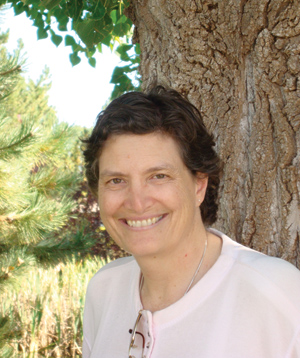 Hilari Bell is a store favorite author here. Her Farsala and Shield, Sword, and Crown trilogies have been go-to handsells for me for many years. They are evergreen titles for us.
Hilari Bell is a store favorite author here. Her Farsala and Shield, Sword, and Crown trilogies have been go-to handsells for me for many years. They are evergreen titles for us.
I was very interested therefore to get an email from her recently regarding her Knight and Rogue series which informed me that…
“HarperCollins published The Last Knight, and two more of Fisk and Michael’s adventures, and they garnered such loyal fans that I decided to embark on an adventure of my own—I’m taking the rest of the Knight & Rogue books indie!”
Hilari kindly agreed to answer some questions I had pertaining to her new venture.
KB: Being a Farsala fan I have to ask a question about the Hrum. We have some examples of market-based empire building unfolding before our eyes in the bookselling world. If the Hrum were a predatory hydra bent on taking over the world, would they go about it differently than the real world wolves at our door?
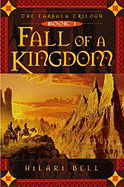 HB: There are some similarities between the Hrum and… a certain other market-based conqueror. They’re both very aggressive, and can be downright ruthless. But once the Hrum conquered a country, the conquered people got a relatively honest government (the governor in my story was an exception to the rule), even-handed justice, fair taxes, and in pretty short order, a path to full citizenship in the Hrum empire—not to mention becoming a partner in the economy of the empire, which opened up a lot of markets.
HB: There are some similarities between the Hrum and… a certain other market-based conqueror. They’re both very aggressive, and can be downright ruthless. But once the Hrum conquered a country, the conquered people got a relatively honest government (the governor in my story was an exception to the rule), even-handed justice, fair taxes, and in pretty short order, a path to full citizenship in the Hrum empire—not to mention becoming a partner in the economy of the empire, which opened up a lot of markets.
I can certainly see that from the point of view of indie bookstores and publishers, Amazon is only the evil empire. But as an author who is going indie, I have to say, Amazon gives me amazing, worldwide market access, and they make it easy for me to publish and sell through them. With almost no upfront cost. And semi-decent customer service. I have to admit, the idea of Amazon having a planet-wide monopoly on the production and sale of books (and sometimes it looks like that’s their goal) is more than a bit chilling—particularly since they’re so willing to use their market leverage. (Also very like the Hrum.) But right now, for me, Amazon is simultaneously the evil empire… and the indie author’s strongest lifeline. I’m quite conflicted about them, because I also have to wonder: if they did establish a monopoly on book production and distribution, how long would their generous treatment of authors last? Given their general ruthlessness, I worry about the answer.
KB: Do you see your publishing adventure as being very time-intensive for you? For example, looking at the larger picture of other established authors faced with similar scenarios, are the personal economics of independent publishing best served by individual authors managing their own works, or is a co-operative effort, a new imprint for established fantasy authors let’s say, a possibility?
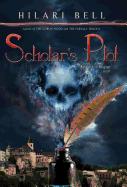 HB: It’s incredibly time intensive. In fact, this will be only the second year in three decades that I haven’t written a novel. But looking at all the work I have ahead, getting my backlist novels onto the market again, and several new ones as well, not to mention having to figure out advertising, there’s just no way I can write a first draft this year. (Which is very frustrating, because I’ve got a book in the pipeline that I’m itching to write!) I’m having to retool my whole career, approaching it as a business person instead of as a writer. Not to mention the way I’m burning through my savings, which may be OK if you’re in your twenties or thirties, but is really unnerving in your late fifties!
HB: It’s incredibly time intensive. In fact, this will be only the second year in three decades that I haven’t written a novel. But looking at all the work I have ahead, getting my backlist novels onto the market again, and several new ones as well, not to mention having to figure out advertising, there’s just no way I can write a first draft this year. (Which is very frustrating, because I’ve got a book in the pipeline that I’m itching to write!) I’m having to retool my whole career, approaching it as a business person instead of as a writer. Not to mention the way I’m burning through my savings, which may be OK if you’re in your twenties or thirties, but is really unnerving in your late fifties!
On the other hand I’m learning a lot, and I like that. I’m facing challenges that frighten me, and slowly getting stronger by doing so. And if I can get to a point where I can make a living reaching out to bookstores and readers directly, I think I’ll be in a more secure position—I’m willing to bet my career on readers continuing to like my books. Other gatekeepers are a lot more fickle.
On yet another hand, I’d love to see an imprint (maybe some sort of co-op?) for established fantasy authors. It would be a huge advantage for me because I could go back to focusing mostly on writing… and I’d go into a deal like that a lot smarter about the business end of publishing than I was before this new indie adventure.
KB: From my point of view the fate of independent bookselling is tied to traditional publishing. I think we need traditional filters from the standpoints of title selection, terms, marketing and distribution angles. This utopic, or possibly just myopic, vision of traditional publishers, established authors, and independent booksellers working together for our mutual interest and preservation against the forces of evil which beset us, leads me to ask two questions.
First, I will share with you that an established author producing more books in an established series cuts a very unusual figure in the swollen stream of independently published titles which are directed to my attention every day. Most of them are bilge. It is much easier, from my vantage, to see independent publishing keep a strictly vanity character, because it would be unmanageable triage to try and sift through them for quality. Is that purely a bookselling issue or does it resonate with you?
HB: Despite my earlier crack about fickle gatekeepers, I know just what you mean, and I’ll be the first to concede that most indie-published books aren’t ready for prime time. On the other hand, in my own writing critique group, I’ve seen a number of novels that were absolutely worthy to be published and couldn’t find a home. Those gates we’re talking about are only open a crack at the best of times, they slam shut on the narrowest whim of the marketing department, and they exclude a lot of books that really should be published. And for writers who don’t have my advantage of having been traditionally published first, getting any kind of traction self-publishing is probably even harder than getting published conventionally.
But as a reader, before I buy a book I also want the assurance of basic quality that a publisher provides. (And editing is essential, too—both substance editing and copy editing.)
My personal prophecy for the publishing industry is that, because of the changes new technologies have brought to production, the big publishers will slowly lose market share to a host of small publishers. (At a writing conference a few years ago, I found myself sitting next to a small publisher who told me, “I can do anything for my authors that a big publisher can do, including get your books into Barnes & Noble. And better advertising, since I only publish gardening and cookbooks and I know that market.”
 These small publishers, unlike today’s big… are there still six?… will have tightly focused lists, and an individual “house style,” so readers who pick up their books will have some idea of the book before they even read the jacket. Like Baen Books, which I’m aware of because they gave several of my favorite authors their start. My understanding is that Jim Baen had a hand in the selection of every book that left his house, and even after his death, the editorial staff still reflects his taste. Or if you want a newer example, there’s Entangled, a very successful new romance press that recently published a member of my critique group. And there are a number of small mystery presses…. This is already happening, and I can’t think of anything that would be better for the whole book industry than a plethora of small presses, in every genre and non-fiction category, industriously publishing all kinds of different books, and the thought that we might be headed that way makes me very happy.
These small publishers, unlike today’s big… are there still six?… will have tightly focused lists, and an individual “house style,” so readers who pick up their books will have some idea of the book before they even read the jacket. Like Baen Books, which I’m aware of because they gave several of my favorite authors their start. My understanding is that Jim Baen had a hand in the selection of every book that left his house, and even after his death, the editorial staff still reflects his taste. Or if you want a newer example, there’s Entangled, a very successful new romance press that recently published a member of my critique group. And there are a number of small mystery presses…. This is already happening, and I can’t think of anything that would be better for the whole book industry than a plethora of small presses, in every genre and non-fiction category, industriously publishing all kinds of different books, and the thought that we might be headed that way makes me very happy.
This is probably the point where I should mention that I’m a terrible prophet, and the people I like on American Idol never win.
KB: Secondly, there are terms issues involved too. Scholar’s Plot is a 20% discount title, which is a special order only rate for most stores. I should hate to see great books leave the handselling arena for lack of a working margin?
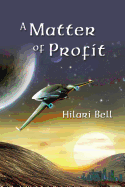 HB: I believe I mentioned that I was still learning? A lot of that learning involves making mistakes—and thank you so much for bringing this to my attention! In my own defense, I did set my “wholesale discount” at 40%. What I didn’t know was that, buried in the fine print of Ingram’s 12-page contract, is the fact that Ingram’s distribution arm is a separate company from their printing arm (which also makes money on the printing) and that if you list a title at a 40% wholesale discount, they take 20% and pass a 20% discount on to the bookseller. If I select the 55% discount they only take 15%, the bookseller gets 40% off…and on a $27.99 hardcover, if one copy is ordered, I end up making 27 cents a book. I can raise my already high prices ($31.99 would get me to a bit over $2 per book) or I can decide that the hardcovers will have to be a special order, and set the paperback prices (which work out a bit more reasonably) to give me a better margin and the bookseller a 40% discount on the paperbacks.
HB: I believe I mentioned that I was still learning? A lot of that learning involves making mistakes—and thank you so much for bringing this to my attention! In my own defense, I did set my “wholesale discount” at 40%. What I didn’t know was that, buried in the fine print of Ingram’s 12-page contract, is the fact that Ingram’s distribution arm is a separate company from their printing arm (which also makes money on the printing) and that if you list a title at a 40% wholesale discount, they take 20% and pass a 20% discount on to the bookseller. If I select the 55% discount they only take 15%, the bookseller gets 40% off…and on a $27.99 hardcover, if one copy is ordered, I end up making 27 cents a book. I can raise my already high prices ($31.99 would get me to a bit over $2 per book) or I can decide that the hardcovers will have to be a special order, and set the paperback prices (which work out a bit more reasonably) to give me a better margin and the bookseller a 40% discount on the paperbacks.
However, it’s worth pointing out that my backlist title (The Goblin Wood), which I’m going to price at $12.99, will get me $1.99 per single copy sold through Ingram, and on Amazon’s Createspace I’ll get $4.34 for the same book sold at the same price. At least some of the difference is probably because Amazon charges the customer for shipping, and with Ingram the shipping is on me, but there when it comes to my bottom line… This is why, once they’d ruled a conquered kingdom for a few years, the Hrum hardly ever faced rebellion.
KB: All right, enough about all that, what can you share with us about your upcoming, or down the road a piece, book projects.
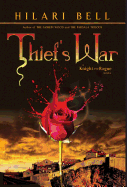 HB:The next book I’m bringing out will be the final book in the Knight & Rogue series, Lady’s Pursuit. I had originally hoped to get it out this spring but it’s more likely going to be fall—and maybe late fall. (Things really are taking twice as long as I think they will.) But meanwhile, I’m going to get Thief’s War and Scholar’s Plot out in paperback (with a 40% discount to booksellers) sometime in April. One of the main reasons I decided to go indie was because I couldn’t bear to leave this series unfinished. They work as standalone novels—in a six-book series, they have to—but by the time I finished book one (The Last Knight) I had an overarching, six-book story arc in mind. I knew, years ago, that Thief’s War would be the book that ends with my two heroes (who spent the first three books cementing their friendship) coming apart over a matter of principle, and that Scholar’s Plot would be the book where I put them back together again. Frankly, these last three books are where the series plot kicks into gear… and I just couldn’t leave the rest of the tale untold. And I have to say, the readers who’ve managed to find those books despite my deplorable lack of advertising (I’m working on it!) have welcomed them with great enthusiasm. There was a lot of wailing when I ended Thief’s War by pulling the whole foundation of the series apart—but now that readers can get the book where things come back together, in an even better shape, I think I’ve been forgiven.
HB:The next book I’m bringing out will be the final book in the Knight & Rogue series, Lady’s Pursuit. I had originally hoped to get it out this spring but it’s more likely going to be fall—and maybe late fall. (Things really are taking twice as long as I think they will.) But meanwhile, I’m going to get Thief’s War and Scholar’s Plot out in paperback (with a 40% discount to booksellers) sometime in April. One of the main reasons I decided to go indie was because I couldn’t bear to leave this series unfinished. They work as standalone novels—in a six-book series, they have to—but by the time I finished book one (The Last Knight) I had an overarching, six-book story arc in mind. I knew, years ago, that Thief’s War would be the book that ends with my two heroes (who spent the first three books cementing their friendship) coming apart over a matter of principle, and that Scholar’s Plot would be the book where I put them back together again. Frankly, these last three books are where the series plot kicks into gear… and I just couldn’t leave the rest of the tale untold. And I have to say, the readers who’ve managed to find those books despite my deplorable lack of advertising (I’m working on it!) have welcomed them with great enthusiasm. There was a lot of wailing when I ended Thief’s War by pulling the whole foundation of the series apart—but now that readers can get the book where things come back together, in an even better shape, I think I’ve been forgiven.
How the Future Looks Now: New Apps for Bookstores
Elizabeth Bluemle - April 1, 2015
One of the best things about writing for PW’s ShelfTalker is that sometimes we get the chance to break book-related news before anyone else! It’s not news that the bookselling field needs to innovate in order to stay afloat, but PW bloggers Elizabeth and Kenny have been looking at some exciting new apps being developed for booksellers to help us face some of our unique challenges and compete in an increasingly aggressive marketplace.
Here are a few of the most ingenious and experimental new apps that are just out of beta testing and will soon be available to booksellers across the country:
***
The iBoat Remote (for international and water deliveries)
Overseas freight charges and customs delays are a nightmare for both booksellers and customers. Fortunately, the International Booksellers’ Association has been proactively developing a new system that will revolutionize book delivery overseas — and to anyone who lives near water. “Remote control submarine delivery” (RSCD) is the next innovation in immediate, individualized distribution of books to consumers. Booksellers will simply load customer orders into waterproof containers and slide them into the iBoat Sub for safe transport under the stormiest of waters.
Dina Garnish, owner of Unfinished Chapters on Tortola, BVI, has been beta-testing the iBoat Remote for two months. “The last thing a bookseller needs,” she says, “is for a customer waiting on Pioneer Girl to have her long-awaited copy eaten by a shark.”
She thinks the predator deflection settings work wonders. “I swear, I’ve seen a lionfish heading for the sub and then suddenly veer away like it heard ‘Party in the U.S.A.’ on the radio at breakfast.”
Garnish also says her store has confirmed a 94% on-time completion rate with the iBoat Remote system. “That’s better than FedEx, UPS, and the U.S. Postal System combined. And I’ve only lost one sub so far. The iBoat folks think a disoriented beluga was traveling out of its usual path and, in confusion, mistook the deflection sound for a mating call.”
“It’s not a perfect system yet,” admits iBoat Remote developer Brandt Vonderzeep III, “but it’s getting close. And unlike traditional delivery methods and drones alike, the iBoat won’t have to combat bad weather on land or sky. It zooms along safely underneath the storms and ice.”
It sounds good, but doesn’t this leave landlocked booksellers out of the loop? Not at all, says Vonderzeep. “They can simply piggyback the system onto a drone until it reaches a viable lake, river, or sea.”
Elizabeth’s rating of the iBoat Remote: “So far, I give it 4 out of 5 Flying Pigs! Extremely promising. More field-testing will be necessary, but this is a very solid and exciting development for booksellers!”
***
Caninartist (dog authoring and illustrating)
One new app to keep our eyes on is the new indie publishing app, Caninartist, which allows dogs to dictate and draw their own picture books through its sophisticated bark-to-text and bark-to-image mapping software. The books are then published via etailing giant Atavism’s expressplace self-publishing platform and available for purchase online and at book and kennel Atavism affiliates everywhere.
Dog owners are reporting being thrilled with the new app. “This is just another example of the great boon indie publishing offers to the world of readers and their creative pets,” Atavism’s Caninartist spokesperson Stan Juiker said. Juiker isn’t the only one who is very pleased with this new publishing initiative.
“I always knew Mango (his golden retriever-dachsund mix) had some great stories to tell,” said Mango’s owner Mark Santeros, “and now with the publication of his picture book, Feed Me, he can share his creative vision with the world.”
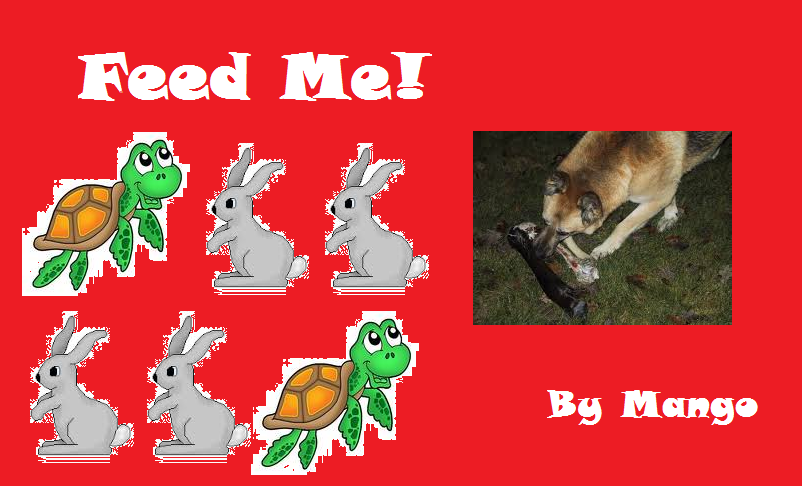 The Caninartist App may not be a boon for independent booksellers though. For example, recently retired bookseller Karen Chittenden commented, “This is why I retired, this goes beyond triage, it’s more like being trapped in a garbage disposal. ‘Capture, Kill, Eat, Good,’ repeated 10 times in a row, that is not a professional narrative, nor do the garish images of sea turtles and rabbits frolicking, which appear to have been just randomly downloaded from a clip art library by the software onto the page, have any artistic value at all.” Juiker offered a different perspective. “Animals help make us more human, and now they can enrich us in even more ways,” he said.
The Caninartist App may not be a boon for independent booksellers though. For example, recently retired bookseller Karen Chittenden commented, “This is why I retired, this goes beyond triage, it’s more like being trapped in a garbage disposal. ‘Capture, Kill, Eat, Good,’ repeated 10 times in a row, that is not a professional narrative, nor do the garish images of sea turtles and rabbits frolicking, which appear to have been just randomly downloaded from a clip art library by the software onto the page, have any artistic value at all.” Juiker offered a different perspective. “Animals help make us more human, and now they can enrich us in even more ways,” he said.
Kenny’s rating of Caninartist: ” I rate this app a 5 out of 5 because it would be arrogant to do otherwise. After all are we really qualified to judge the literary output of our canine companions?”
***
Bookistry (literary palm reading app)
A highly touted bookselling app that launched recently, the American Booksellers Association’s palm reading app, Bookistry, has met with a mixed, but mostly positive reception. The Bookistry app, which offers customers palm readings to discover what their ideal book selections are, got off to a flying start as indie customers were quick to open both their palms and their wallets for this in-person, electronic palm reader.
The app, which is integrated into bookstore POS systems, is very easy to use. Booksellers simply scan the customer’s palm and their ideal book titles appear in the POS cash register. DDG was a beta test store for the app. I can tell you that results were both surprising and gratifying. Twenty-two-year-old bookseller Sam Oppenheim noted that, “I had always been a Neil Gaiman reader, and I must say that I was surprised by the app results, but let me tell you, it knew me. Anne River Siddons is the bomb!”
Doris Maybury, mother of seven-year-old Grace, echoed those sentiments. “At first I thought Grace was a little young for Haruki Murakami but I was so wrong, she can’t put IQ84 down!
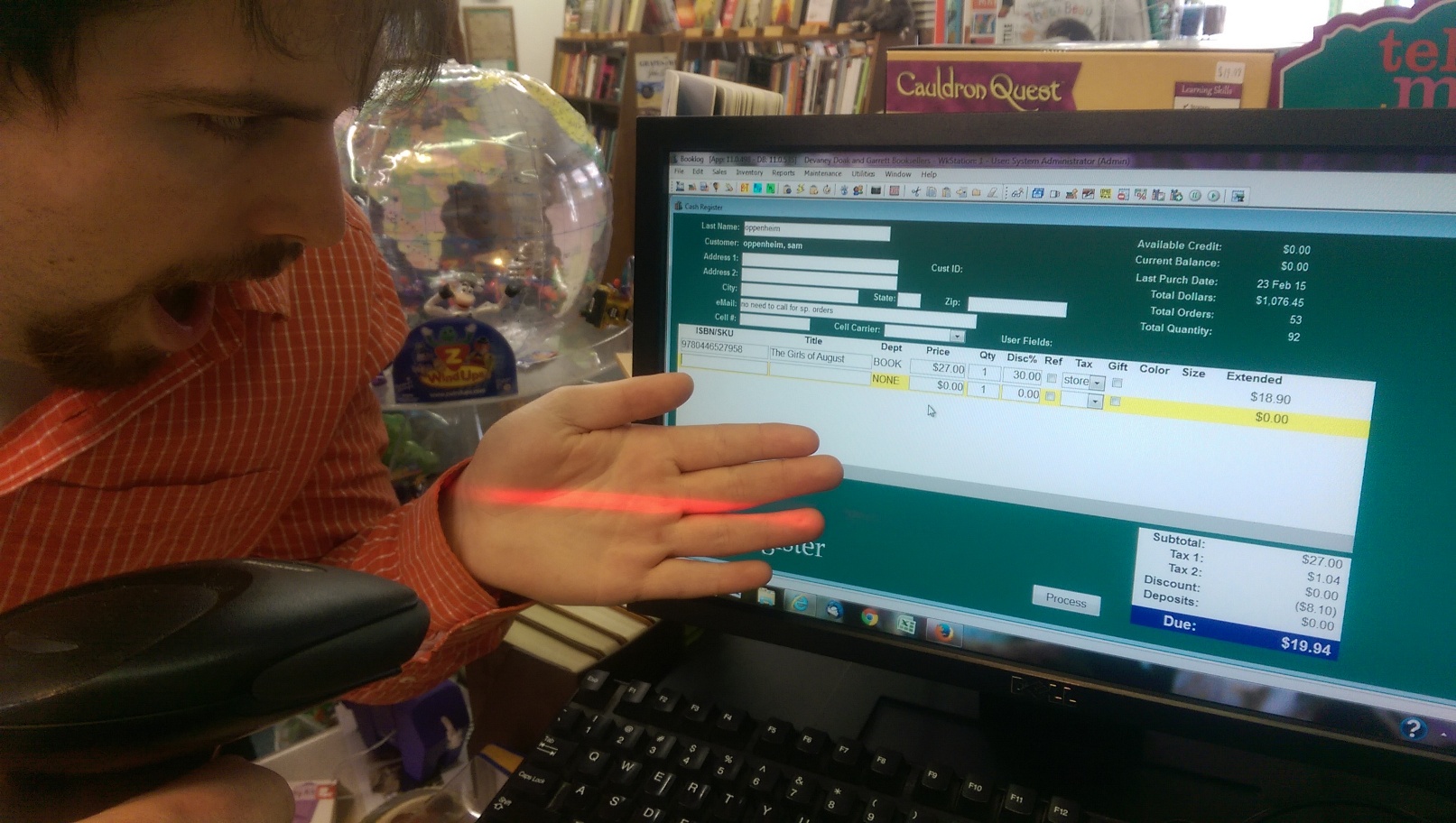
Other stores have reported darker experiences, though. “At first I thought this was an ideal extension of handselling,” said Gabby Watkins of Red Ribbon Books. “When the Bookistry scan kept adding bereavement titles for one of my favorite customers to purchase, we laughed it off. I figured it was just a glitch. I know better now. I’m not laughing anymore. Did Bookistry read the future or cause it, that’s what keeps me up at night.”
Whether it is the cause or merely the messenger of future events, app developer Jane Hypand declared that Bookistry is here to stay. ”Look, nothing in life is perfect. Being matched up with your ideal books in a less than ideal world is bound to have some attendant complications, but the benefits far outweigh any negatives.” Totally agree!
Kenny’s rating of Bookistry: “I rate this app a 4 out of 5 because I agree with Hypand that its benefits far outweigh its occasionally uncomfortable revelations. Uncovering the books which our customers are destined to read is too large a leap forward to be set aside out of a reactionary fear which, if humored, would leave us in the position of cowardly shielding our eyes from the future.
***
Booksellers, will you be trying any of these new apps? And have you encountered any apps that you think signal the future of bookselling?
Happy April!

